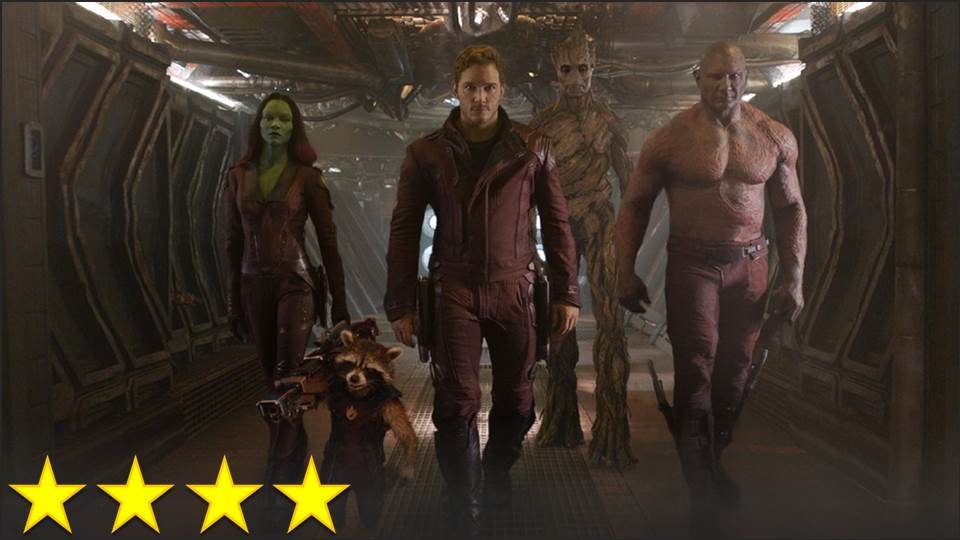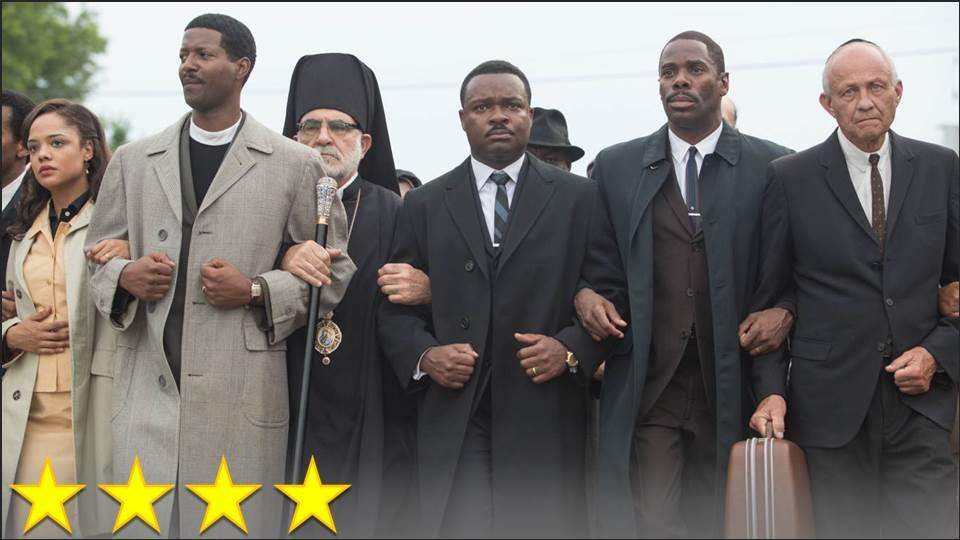NOTE: This is an amendment to a previous review of the same film.
When I first reviewed this movie, I don’t think I gave it nearly enough credit for how important it is as a film. In a way, it may be the most important film of 2014.
One reason I feel this way is that it presents a very different kind of comic book movie – one that doesn’t need to be taken seriously the way The Dark Knight does (in fact, its inclusion of Howard the Duck shows just how little it wants to be taken seriously) and that combines many genres. It proves that a good Marvel comic book movie can also be a very good comedy film, without either genre taking away from the other, thus paving the way to Deadpool. Its aim is to have a lot of fun exploring a cool, interesting, and fully-developed sci-fi world. Consequently, and perhaps paradoxically, Guardians of the Galaxy is great sci-fi even though it isn’t great science fiction. By that I mean it doesn’t present viewers with new and interesting concepts that scientists or philosophers may be interested in exploring the way that Jurassic Park, Star Trek, The Twilight Zone, and Ex Machina do, but it does present viewers with a world in which they’ll want to become fully immersed – we all want to live in that galaxy. The action sequences are also quite impressive, making Guardians precisely the kind of action movie that I can get behind.
Another reason why Guardians is important is that it uses music differently from other films. Obviously, most movies today (particularly family films) rely heavily on recognizable pop songs, and it is by no means uncommon for them to be songs from the 1970s – consider how Despicable Me uses “You Should Be Dancing” in its final scene even though the filmmakers had contemporary pop artists at their disposal. What makes the use of music in Guardians of the Galaxy and its sequel so interesting is that there is never a sense that the music is something added once the scene has already been shot; the songs in these films were famously written into the screenplays and woven into the plot. This is generally considered a big no-no in Hollywood: every screenwriter who’s made it in the business knows the rule that specific songs are never named in screenplays because it makes the producers, studio heads, directors, readers, etc. think about how much it would cost to buy the rights to those songs. I think this used to be a bigger issue than it is now because films rely on expensive pop songs more and more, so producers know to put them into the budget, but it can still be difficult to get the rights to specific songs since some artists require a lot of convincing (see this article and read about getting the rights to “Mr. Blue Sky” for Vol. 2). For this reason it is a very big deal that Gunn has set precedents for successful screenwriters scripting the songs they need to make the scene work best, allowing for more carefully-tailored soundtracks in films to come.
This isn’t the only interesting aspect of Gunn’s use of music in the Guardians films. The reason why most filmmakers and film studios haven’t seen much of a problem with making music choices an afterthought, I think, comes from the line of thinking that film is a visual medium. Usually, a film’s score is seen as something meant to enhance what the characters are doing on screen, and this makes sense in the context of film history since silent films were often shown with a live pianist offering an accompaniment. Disney’s Fantasia, on the other hand, runs contrary to this thinking about film – rather than making the soundtrack subservient to visuals, Disney made a whole movie out of visuals that are subservient to the soundtrack. I argue that the Guardians movies work in part because the characters are listening to the music as they fight, fly, work, and play, letting the music guide them. Both the characters in the film and the makers of the film are using their experiences to celebrate the music itself, and the audience is invited to join in that celebration. This idea that the scene is subservient to the music and that the music itself is sort of the main attraction (almost something to be glorified) is explored most explicitly in the second film, but I’ll explore that more in my separate review dedicated to Vol. 2.
The importance of the Guardians series in terms of its visual/aesthetic contributions to cinema must not be overlooked either. I’m sure a lot of critics think the main way in which this film is visually impressive is in its use of CGI, with Rocket Raccoon looking remarkably believable in most of his scenes, but I’m more interested in Gunn’s use of color. Most movies (made for adults) from the past decade or so have had very muted palettes, whereas the color palette of this film is, while too digital to have all the warmth I might like, more vivid and beautiful than that of most contemporary fantasy films. Most of Disney’s live-action films today look frighteningly cold and lifeless, with the Beauty and the Beast remake resembling the rotting corpse of its animated predecessor, but Guardians isn’t afraid to fill the screen with bright blues and purples, swirling around like a friggin’ van Gogh. This, I think, is why more films from the past two or three years have started moving away from the gray pseudo-realism that has consumed so much of Hollywood cinema: Gunn tried being colorful and succeeded, so other directors are finally feeling free to use pretty pinks and deep blues again, sometimes openly contrasting them with the look that most films have had as of late. Between Guardians and La La Land, I might see cinema come alive again within my lifetime, and that’s a very exciting thing.
As important as I believe Guardians is, what I realized when I watched it for my second time is just how much I simply love it as a movie. I love the characters and the comedy, and I want to spend all the time I can in this world. I consider the opening titles sequence to Guardians to be one of the best in history because of how joyous it is, and for that matter, there are very few films that manage to be as joyous throughout at Guardians. Unfortunately, I found myself checking my watch a few times since the film feels rather long, which is something that hasn’t changed since I first saw the film in the theater, but my appreciation for the film still keeps growing anyway. It’s truly amazing to me that a film this silly, this fun, and this special was made in such a boring time for cinema, and I’ll gladly keep tipping my hat to Perlman and Gunn ‘til my hand falls off. Sure it has its problems, but it’s a true gem of cinema for which I’m forever grateful.





